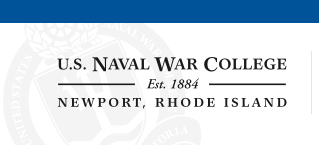
Women, Peace, and Security
The primary objective of the Women, Peace and Security (WPS) conferences at the U.S. Naval War College is to foster discussions, facilitate knowledge sharing, and provide education on the goals of WPS. This aligns with our mission to develop future leaders and is guided by the policy framework outlined in UNSCR 1325 (2000) on Women, Peace and Security, the U.S. WPS Act (2017), the U.S. National Strategy on WPS (2019), and the U.S. Department of Defense WPS Strategic Framework and Implementation Plan (SFIP 2020).
Specifically, the forum aims to advance three key defense objectives:
- To model women’s meaningful participation in the management, development, and employment of the Joint Force.
- To promote the meaningful participation of women in all occupations in the defense and security sectors of partner nations.
- To ensure that vulnerable women and girls in partner nations are safe, secure and protected -- particularly during conflicts and crisis.
-

Joint Maritime Operations
Professor Jane Stokes
During this discussion, Professor Jane Stokes, will discuss the integration process of WPS material into JPME curriculum and how to nest contemporary security issues specifically into the Joint Maritime Operations (JMO) syllabus. Through the lens of a JMO professor, Professor Stokes will explain how WPS discussions on state stability and fragility provide an appropriate seminar topic related to the competition continuum. Prof Stokes will then conclude with remarks on the need for additional case study material and experienced based articles to further the depth of these classroom discussions.
-

Military Masculinities, Tactical Femininities, and the ‘Third Gender’ in Ashley’s War”
Maj. Lauren Ward
The panelist provides a rhetorical analysis of the 2015 book, Ashley’s War: The Untold Story of a Team of Women Soldiers on the Special Ops Battlefield by Gayle Tzemach Lemmon, focusing on the “audience” aspect of the rhetorical triangle (author, audience, message). The book is first presented as a celebration of women’s meaningful participation in combat through the Cultural Support Team (CST) program appealing to a public audience. It is viewed as a celebration of women’s abilities to succeed in hypermasculine environments while simultaneously maintaining feminine characteristics. Subsequently, the speaker offers a critique of the book’s instrumentalization of gendered labor, given feminist critiques of stereotypically feminine labors performed by the CSTs.
Finally, another perspective on the book’s glamorization of the performance of military masculinities alongside stereotypical femininities without solving any of the underlying tensions about masculinity or femininity in the context of warfare is shared. As a possible solution, the panelist situates “tactical femininities” within the context of strategic feminism to reclaim ownership of the strategic aims that drove both the CSTs and Ashley’s War. The session calls for the careful examination of the language we use to tell the stories of women in combat to varied audiences.
-

Curriculum Development at Defense Security Cooperation University
Dr. Susan Yoshihara and Dr. Grace Hoffman
American Council on Women Peace and Security Founder, Dr. Susan Yoshihara, and Fellow, Dr. Grace Hoffman design, develop, and implement tailored WPS curricula. They will speak about their work at Defense Security Cooperation University (DSCU). At DSCU, their team integrated WPS into training, certification, and graduate education. The hallmarks of their approach include close working relationships with the faculty, alignment with U.S. law, understanding of international and partner nation WPS perspectives and mandates, and the highest standards of scholarship. They believe that the faculty are the best educators of WPS within their courses due to their mastery of the material.
Security cooperation is the main way DoD implements WPS and DSCU teaches and certifies the 18,000-strong security cooperation workforce. Dr. Yoshihara will explain the way her team analyzed curriculum and tailored WPS for key courses with a view to how NWC faculty can approach Joint Military Operations and National Security Affairs. Dr. Hoffman will speak from the perspective of both a WPS instructor at DSCU and as a historian, who recognized the value of WPS to her own historical research. She will address how WPS can add value and bring new knowledge to courses that focus on historical cases.
-

2017 Working Papers
The U.S. Naval War College
"The Next Decade: Amplifying the Women, Peace and Security Agenda"
-

2015 Working Papers
The U.S. Naval War College
"Constructive Pathways: Stimulating and Safeguarding Components of WPS"

